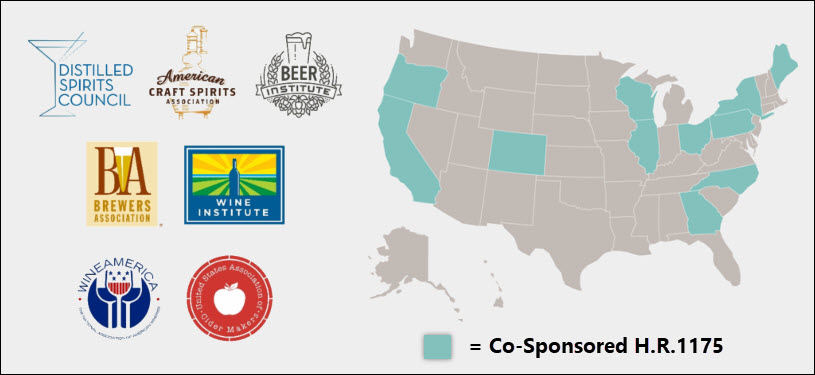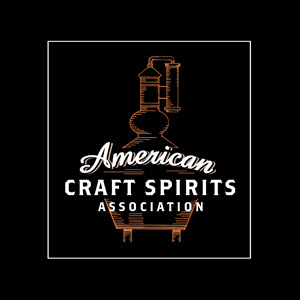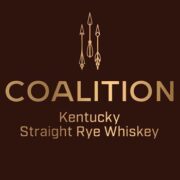
Last week the Senate introduced Senate Bill 362 to move a two-year provision to reduce Federal Excise Taxes – FET from its temporary status to permanent. This week, the House introduced a companion bill to do the same thing. The original bills took effect January 1, 2018 and are set to expire December 31, 2019. The bills reduced FET tax on distilled spirits from $13.70 to $2.70 for the first 100,000 proof gallons. These two bills have strong support from a broad group of industry trade associations including the beer, wine, spirits, and cider sectors.
HR 1175 Introduced to Make the FET Reductions Permanent
On February 13, 2019 Congressmen Ron Kind (D-WI) and Mike Kelly (R-PA) reintroduced the Craft Beverage Modernization and Tax Reform Act to make the reductions permanent. This critical legislation was first introduced in 2015 to offer parity to craft spirits producers and earned strong support with a majority in the Senate and two-thirds support in the House before its passage in December 2017.
Now with the December expiration date in sight, the major beverage alcohol trade groups across spirits, wine, beer, and cider remain aligned and committed to working together to bring about a more permanent relief. The FET tax policy is slated to revert back to a reduced excise tax rate for small producers of beer and wine while leaving craft distillers at the same rate as major corporate suppliers.
The financial threat is real: craft spirits producers will once again pay 5.4 times more FET than craft brewers, and 16.4 times more FET than a small winery for equal quantities of beverage alcohol. Like the current legislation the proposed permanent legislation would reduce the Federal Excise Tax from $13.50 to $2.70 per gallon for the first 100,000 proof gallons removed from bond per year. This would provide parity with craft brewers and small vintners, who have enjoyed a reduced FET based on their smaller size for many years.
The craft distilling industry is growing, with, on average, one distillery opening per day. There are nearly 2,000 craft spirits distilleries operating in the U.S. in all 50 states, employing nearly 20,000 people. Investments in the industry in the last decade have now reached nearly $600 million, according to the most recent Craft Spirits Data Project, but the threat of a rising FET rate is bound to slow that year-over-year growth down significantly.
Stay Informed: Sign up here for the Distillery Trail free email newsletter and be the first to get all the latest news, trends, job listings and events in your inbox.

People in the distilled spirits industry as well as their fans that love their spirits and the impact these small businesses are having on their community should contact their Senators and Congressmen and let them know they support this legislation.
As of February 14, 2019, 14 senators have signed on to support the bill. Here’s the full list as of right now.
[table “” not found /]Please help to support Distillery Trail. Sign up for our Newsletter, like us on Facebook and follow us on Twitter.














